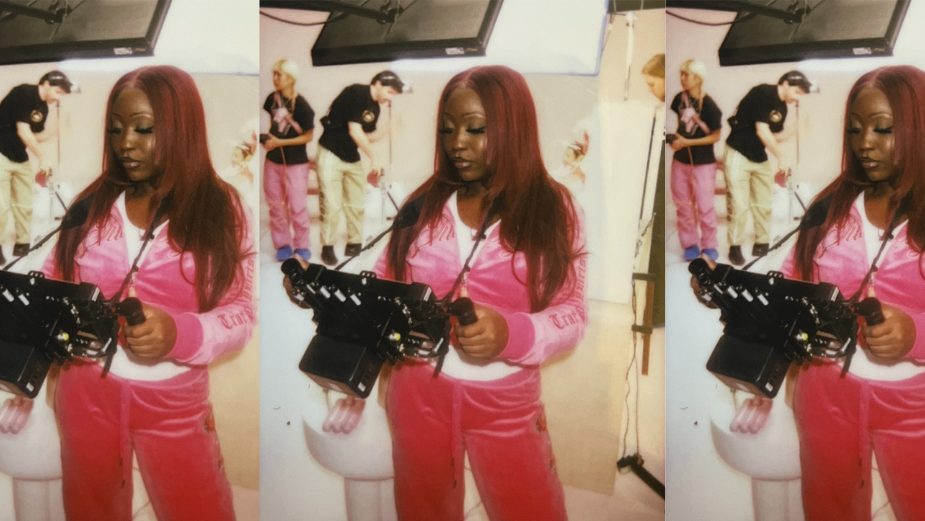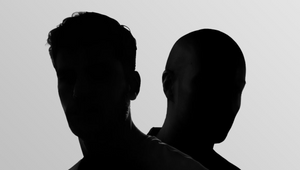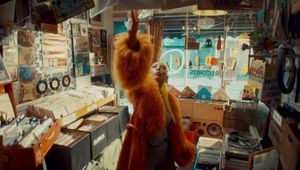
Jedidah M., Staying True to Foundations While Breaking Creative Boundaries

Director Jedidah M., repped by award-winning creative production company Ocurens and part of the Octane roster, grew up knowing she was destined for creativity, even when she didn’t yet know what form it would take in her life. Like many, Jedidah was unaware of what ‘directing’ meant growing up, but she describes an “innate sense” that would somehow find a way to channel the creativity she had within her.
While she grew up keen on creating art in any form, Jedidah also felt a strong pull towards business. “In a way, being a director is a lot like running a business,” she reflects, “so I always had this feeling that those two worlds would eventually intersect.”
At university, Jedidah got to dip her toes in the media world and see storytelling up close through a journalism degree, but after an unexpected turn she found herself in a “pretty uninspiring tech job” working on product marketing. During this time, her craving for creativity never fizzled, and her outlet was ‘WE ARE SOUL’, a platform that she started as a side project during university and then officially registered in 2019.
“Through this platform, I was able to express my creativity by organising music events and working on visual projects,” she says. “But even then, I felt like something was missing – there was still a part of me that wanted to create something that was truly my own.”
Going freelance and then joining Ocurens are parts of the path towards creating things that are truly hers, and ultimately helped Jedidah tell the stories she feels are most important and least likely to be heard.
Today, she speaks with LBB’s Zoe Antonov about inspiration, amplifying her own voice, standing up for herself, and more.
LBB> What were your early inspirations in your work and what did they teach you? How have they changed today?
Jedidah> The first personal project I did was around people in the music industry and telling their stories. I've always been really passionate about people in this space. There were loads of series about music artists, but I felt that the interviews didn’t delve deep into each person in an intimate way, creating that feeling like you’re almost in the room with them. I wanted to strip things back and create something that felt more personal.
It’s always been important to create things that I wasn’t seeing myself. Whether I work with smaller creatives or big celebrities, I'll find a way to tell their story in a way that feels relatable.
As a dark-skinned Black woman and a Black creative, I’ve noticed the lack of representation in the industry – especially when you look at the top earners or decision-makers. This is despite the fact that so many of us have immense raw talent.
That’s why I make it a point to champion people who look like me and tell stories that resonate with my experiences. Of course, these aren’t the only stories I can tell, but when the opportunity arises, I push them forward, because they’re often the ones that don’t receive the recognition they deserve.
LBB> Tell me a little bit about the last couple of years in your career. What have been the most exciting developments?
Jedidah> So much has happened in the last three years since I went full-time freelance. I think the top moment was getting signed by Ocurens. It just felt so authentic and I felt really connected to the people working there. I had a friend who was like, “oh, I really love the agents that I work with”, and I remember thinking, I hope that’s what I get when the time comes. So when Bunmi Oyateru (the creative director of Octane) told me Emm Le Chat (Ocurens’ managing director) wanted to sign me, I said yes instantly. You don't have to ask me twice! It was just a perfect match.
Another amazing moment was when I flew out last year to Spain to direct a commercial. That was a big deal for me because I've flown out for filming or editing, but I'd never been flown out to direct anything. I got to learn how to work with a different culture because most of the people on the crew were Spanish. Just being able to see that I can do it and that people recognise me as a director was pretty special.
LBB> So was it an active decision to direct?
Jedidah> It was a mixture of things. I had been filming, doing videography, and editing. Then I started doing photography using film, which really helped me build up my camera skills and develop my creative eye, alongside running and creative directing my platform ‘WE ARE SOUL’.
But there was a day that I definitely was like, “I'm putting director in my bio, even though I've not directed anything officially.” I'm not going to put ‘aspiring director’. I'm just going to say, it's happening. And then it happened! At the end of 2020 I'd been doing photography for a few months and I had just directed a little project for The Spaces Magazine, and then by January the next year, I secured a six month retainer with a company as a director. It just shows, you actually have to put things out there to make them happen.
LBB> You don't only craft film, but also digital content. Do you feel that you're able to translate your creative voice successfully in this medium and how do you do it?
Jedidah> I do think that I'm able to get my voice across, but I tailor it to whatever I'm doing. Having people involved in the narrative, though, is important to me. So in any project, whether it's film or digital content, whether it's five minutes or whether it's 30 seconds, as long as there's a person and I have the space and ability to connect with them, I can get my message across for sure.
LBB> What was the first project that gave you the confidence you needed to keep going through the industry? Why do you believe it was so good for you?
Jedidah> I'd say there's two. The first one was a video editing job for an Estée Lauder campaign, and I do believe this job is part of the reason I am where I am today.
This was the first campaign I did which involved a bigger brand putting their trust in me, with something that was going nationwide. I was a self-taught editor but I rose to the opportunity and I pulled it off – the campaign was a big success.
The second moment was when Tate Britain asked me to direct an artist film. I was seven months into directing so it gave me a huge confidence boost. Not that you need a big brand to give you the confidence to direct, but it does help because the stakes are higher. It’s a real demonstration of trust in you as a creative because you’re helping to shape their narrative as a director.
LBB> Was there a particularly challenging project you can tell us about? How did you overcome whatever challenges came from it?
Jedidah> I'd say ‘ILẸ WA’, my short film, was challenging because it was all me, from coming up with the idea all the way to its premiere.
For example, when it came to sound design, I was so picky because I knew it had to be right. We did so many iterations and so many versions, because I knew that there was a certain thing I needed.
Even filming in a different country was difficult – yes, it was my home country, but I'd never filmed there before. I really resonated with the narrative because it was about being from the diaspora and being indigenous, and I have experienced both. But this connection brought its own challenges too.
For example, when it came to sound design, I was so picky because I knew it had to be right. We did so many iterations and so many versions, because I knew that there was a certain thing I needed.
And then on releasing it, the premiere was amazing – we screened it at the National Gallery, which was huge. But putting it out online was challenging for me emotionally. Passion projects are tough logistically but it’s also your baby out there, it’s a piece of you. I haven't done a personal project since then but I’m doing one this year, thankfully, in Nigeria, which I’m super excited about.
LBB> You work across narrative, music videos and commercials. Which one do you love working on the most and find yourself drawn to?
Jedidah> In a perfect world, I would love the commercials I do to be inspired by what I’m passionate about in my narrative work. Even though I run a music and art platform and I love music, music videos are nice to do every now and then but they're just not where I want to be. I’m drawn to narratives because you're telling real people's stories, but you can make that truth artistic. You can make it beautiful. Make it whatever you want it to be. And I think that's so beautiful.
LBB> Tell me more about your photography and what role it plays in your creative world.
Jedidah> So when I do personal projects, I do like to also do a photo series with it because I believe stills can help me tell the story in a different way. It was definitely helpful in the beginning as a director, because when you're shooting on film – especially on medium format film, which is very expensive – you really have to take your time before you click that shutter. You have to know what you want, how you want it to feel and look. I think this helped me to be speedy as a director now, because I meticulously plan out my shots beforehand and am always very intentional.
LBB> What are you most excited about for the future?
Jedidah> I've not even scratched the surface! I'm just excited about seeing how far I can take this. What stories can I tell in my own personal projects? What are they gonna look and feel like? How can I do a better job of amplifying my voice? There's no specific goal that I have anymore. I want to see how far I can push myself, but also stay true to myself at the same time. I don't think it's a bad thing to have goals, but I try not to box myself in if that goal doesn't happen. Or if it happens later than planned, that’s okay. The process is more important than the end goal, for me.
LBB> How do you believe your creative voice has developed over the years? And then what are some differences you see in your expression between the start of your career and now?
Jedidah> I’ve actually never really thought about this question! I think my skill level has definitely developed, but in terms of the foundation of what I try to achieve in all my work, I don't know if that's changed. I definitely stand up for myself a lot more. I advocate for myself and others a lot more vocally than I did before. But that forms the basis of all the work I try to do. And I’m not sure whether that will ever change.















